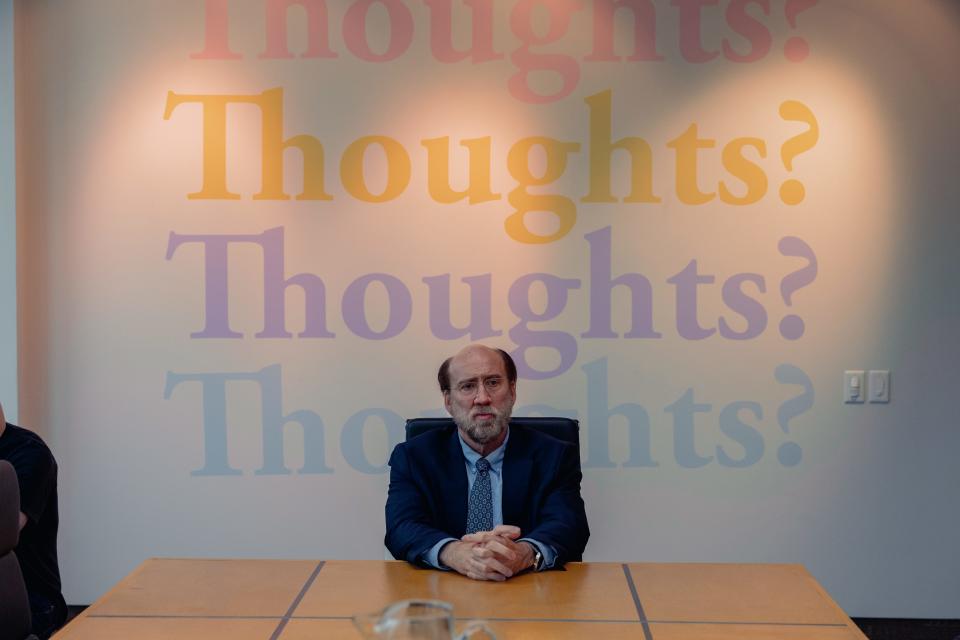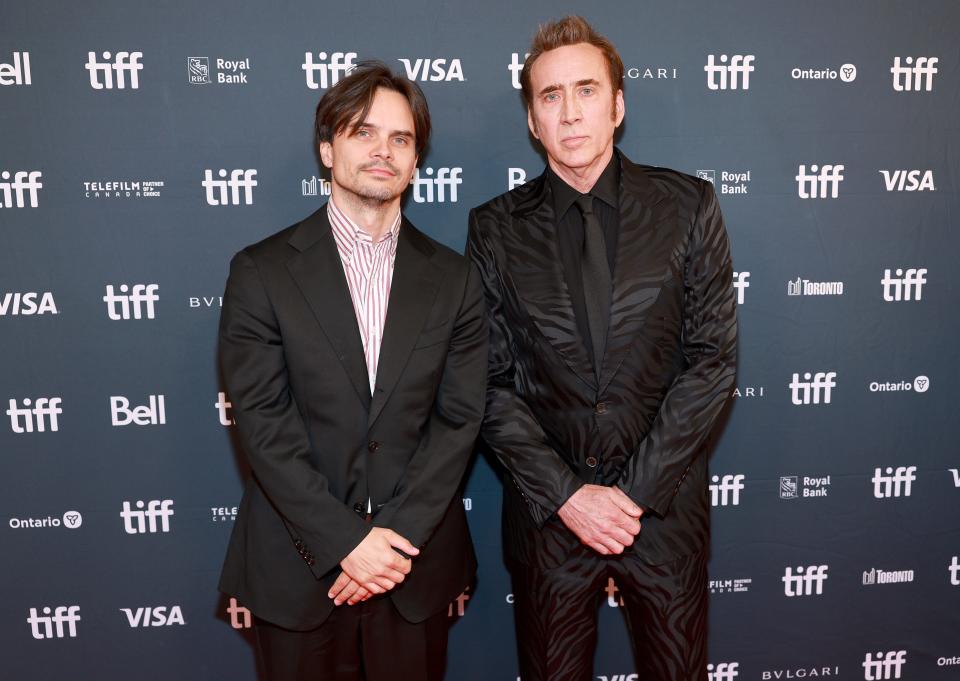Could advertisers invade our sleep? 'Dream Scenario' dives into fears, science of dreaming
Nicolas Cage is everyone's worst nightmare.
Well, at least that's the premise of his dark new comedy "Dream Scenario" (in select theaters now, nationwide Friday). Cage plays sad-sack professor Paul Matthews, who becomes an overnight sensation when, for some unknown reason, he starts appearing in thousands of people's dreams around the globe.
Written and directed by Kristoffer Borgli ("Sick of Myself"), the film explores topics like cancel culture and narcissism in the internet age. But it also asks what dreams reveal about ourselves, and how many scientists fear that dreams will soon be used for advertising. (Paul tries to leverage his newfound celebrity by scoring brand deals, carrying Sprite cans and all manner of products into people's dreams.)
USA TODAY spoke to Borgli about re-creating dreams onscreen and why they should remain "a sacred place."
Ranked: The 15 craziest Nicolas Cage performances

Question: You wrote this script during COVID-19, when all these studies came out about people having very bizarre and very similar pandemic dreams. Was that your inspiration for the film?
Kristoffer Borgli: I had already written the first draft (in late 2019), so that just felt like a meaningful coincidence. It felt eerie to write about a dream pandemic and then a real pandemic hits. Dreams are still just very mysterious. The fact that we haven’t gotten a scientific consensus on why consciousness doesn’t require physical presence in the world – that you can be sleeping and have a full, vivid experience – is really trippy.
What sorts of research did you find most enlightening?
There was Matt Walker’s book, “Why We Sleep,” which is more a scientific understanding of sleep and dreams. And then you have (Sigmund) Freud and Carl Jung, who have a more mystical approach. Jung coined the term “the collective unconscious” and was very interested in why it is that across the world in different cultures, the same ideas could emerge in literature or symbols or characters. His theory was that there was some cosmic unity of all our minds somehow.

The film depicts some very common dream tropes, like getting hit by a car or a building collapsing. How did you decide which dreams to include?
The most universal dream is losing your teeth, so I was like, “I need to represent that.” Aside from that, I was just following what I wanted to do as a director. What are some mini-movies that I want to shoot? When you’re inside of a dream, you take it very seriously. But when you tell someone about your dream, suddenly it can feel ridiculous. Your skepticism is on and the logic of the waking brain is very different than the logic inside a dream. I wanted the audience to take these dreams seriously and understand the person’s fear (while dreaming), so there was a limit to how ridiculous they could be.
So how did making a movie about dreams affect your own dreaming? Did Nic Cage ever appear?
(Laughs.) Yeah, but that’s always been the case. Whatever work situation I have starts feeding into my sleep. (Making a movie) is so consuming, so of course in my dreams, I’m on set and something goes wrong. But sometimes I’ll get an idea that I can steal from my dreams and put into the movie. I started keeping a dream journal because they talk about that in the film, so now I have a book of all my dreams. It’s so much fun to read through – I feel like I have enough for three more “Dream Scenario” movies.

Did any of your dreams make it into the film?
The scene where Paul is trying to punch someone, and his punches are really slow and syrupy – that’s a recurring dream I have. I thought that was something everyone experienced. But I’ve been doing Q&As and I ask the audience how many people have that dream, and it’s always like 20, 25% raise their hands. It’s a lot, but not as much as I thought.
After Christopher Nolan's 2010 movie "Inception," searches skyrocketed around lucid dreaming and shared dreams. Do you hope this movie inspires similar curiosity?
I’m hoping that we treat dreams as a sacred place that we shouldn’t let capitalism invade. I’ve already seen technology about dreams and how we can influence or change them. I’m fearful of letting dreams be part of that. The bathroom and our dreams are the only places still left where we don’t have to perform (for other people). So I’m hoping that we’re inspired to let dreams be uninvaded.
This article originally appeared on USA TODAY: 'Dream Scenario' movie with Nicolas Cage explores meaning of dreams
